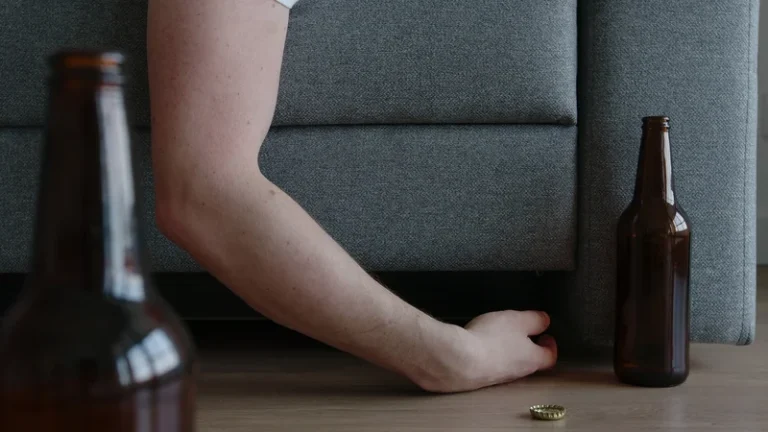
Detox is generally the first step in an individual’s recovery process and it’s followed by the person’s entry into a formal drug rehabilitation program. With detox, the person can comfortably and safely withdraw from alcohol. As you’ll see throughout the article, abuse of alcohol and https://ecosoberhouse.com/ depression share many of the same signs, symptoms, and consequences. What’s unfortunate is that the lack of physical activity causes a person already struggling with issues of low self-esteem and/or body image issues to feel worse. That’s because your body is trying to heal itself from the harmful effects of drinking.

Repetitive transcranial magnetic stimulation enhances tai chi chuan–linked benefits, study claims
At the same time, people with depression may attempt does alcohol make depression worse to self-medicate with alcohol. So many members of our community, including myself, have had harmful experiences with healthcare providers when seeking care for vulnerable issues. Please know that everyone here at FOLX genuinely wants to help you in a supportive and non-judgmental way.
Treatment is Available
This is when withdrawal symptoms of increased anxiety, irritability, restlessness, agitation and disturbed sleep, among others, are at their peak. It’s not unusual for low spirits to accompany heavy alcohol use. In fact, research shows that anxiety and mood disorders commonly co-occur with alcohol use disorder, and depression is the most common among them. But with the right treatment and support, most people with depression can make a full recovery.
Why You Feel Depressed After Drinking and How to Handle It
However, those who drink in moderation appear to have fewer symptoms of depression than those who abstain completely. Retirees who reported binge drinking also tended to have more symptoms of depression than non-drinkers, researchers found. Binge drinking is defined as five or more drinks on the same day for men and four or more for women.
Depression and alcohol addiction is a vicious pair that can certainly be challenging to overcome. However, treatment can be super effective in treating the effects of alcohol on depression. The actual pathways leading to the overall development of the co-occurring depressive disorder and an AUD are intertwined and complex. Some individuals might present to be susceptible to both alcohol and depression. For other individuals, the actual symptoms of a depressive disorder can impact and influence AUD development.

How alcohol and depression interact
- If you’re in recovery, and depression is a drinking trigger for you, this can make things especially difficult.
- “Alcohol is a depressant, and can cause depression, worsen someone’s depression and can cause rebound anxiety.
- Depending on your intoxication level, you may experience decreased inhibition, loss of judgment, confusion, and mood swings, among others.
- In addition, seniors tend to process alcohol less well than younger people, and might be taking medications that interact with drinking, researchers added.
Can alcohol and depression really be linked if alcohol makes many people feel “happy” when they drink? Alcohol is classified as a depressant because of its effects on the central nervous system—not because it necessarily makes people feel sad or depressed in the short term. Some people may experience a temporary uplift in mood or sense of happiness when drinking alcohol. However, it’s important to recognize that these effects are often short-lived and can be followed by negative consequences such as impaired judgment, decreased coordination, and potential mood swings. If you’re being treated for both depression and alcohol abuse at the same time, however, you should be careful about combining antidepressants and alcohol. Alcohol can also worsen the side effects of antidepressants, which include dizziness, drowsiness, insomnia, blurred vision, headaches, and more.


If you begin to notice any unwanted side effects — physical or emotional — while drinking, it may be best to call it a night. Responsible drinking doesn’t just refer to staying off the road. By following safe drinking guidelines, you can help reduce your risk for depression as well as other hangover symptoms. According to the National Institute on Alcohol Abuse and Alcoholism, moderate drinking means one drink per day for women and two drinks per day for men. Spending time in nature can also have health benefits, including improving your mood. If the sun is out, that’s even better — sunshine can trigger the release of serotonin, which can help relieve depression.
With over 20 years of proven experience, Clearview can help you or a loved one on the path to recovery and well-being. Group therapy, family counseling, and peer support create a network of drug addiction treatment support. In fact, the likely scenario is that you will eat unhealthy meals because you don’t have the time or energy to invest in smarter choices. Without getting too clinical, what’s important to know is that alcohol stimulates the automatic nervous system. And because what goes up must come down, your mood will eventually nosedive. Over the course of time, the reliance upon such beverages can transform into abuse.
 العدسة نيوز
العدسة نيوز
